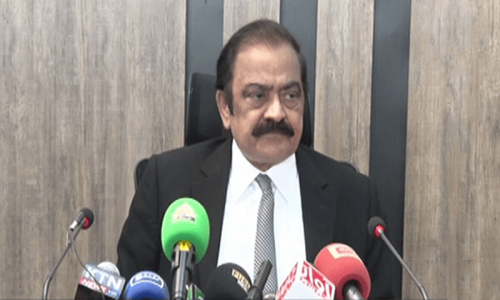WITH the country now in election mode, all eyes will be on the Election Commission of Pakistan, which must ensure that the upcoming polls are held fairly and on time.
The watchdog will be walking a tightrope due to the last-minute notification of fresh census results by the former PDM government, which has necessitated the fresh delimitation of constituencies.
The prevalent belief is that the ECP will not be able to complete the delimitation while meeting the election time frame stipulated in the Constitution. At the same time, recent developments have restricted the space for any legal manoeuvring.
It may be recalled that a three-member bench of the apex court had, earlier this month, issued a detailed judgement castigating the ECP’s decision to postpone elections for the Punjab and KP assemblies as ‘unconstitutional’. The judgement in question had severely rebuked the ECP for “failing to appreciate its constitutional authority” over its failure to hold elections on time.
A week later, the court also struck down a law that would have allowed the ECP to seek a review of that judgement. Yesterday, the court weighed in on the delimitation of constituencies as a two-member bench heard a 2018 petition on the same matter. Observing that the ECP must conduct the exercise in a transparent manner, the chief justice, who was part of the bench, described the issue as “a matter of public interest”, which has been brought to the Supreme Court multiple times.
With the legal noose tightening around the ECP’s neck, it must also contend with the complications of the task before it. According to an analysis published in these pages, the delimitation exercise will likely end up affecting dozens of districts at the provincial level.
As there is no National Assembly to simply increase the number of seats in the provincial assemblies to reflect changes in the population, the ECP may have to redistribute existing seats between different districts within provinces. It may also have to create new constituencies such that parts of one district may share a constituency with parts of another.
Either of these could trigger a political uproar and lead to multiple new legal challenges, which would imperil the timely completion of the entire exercise. Amidst all this, the ECP must also undertake the delicate task of drawing up new constituencies.
Gerrymandering, which is the manipulation of constituency boundaries to alter their political makeup and thereby ‘control’ election results, will remain a particularly important concern, especially considering that other forms of pre-election engineering are also very much in play.
The ECP must, therefore, take all stakeholders along and ensure complete transparency in its work. With the law breathing down its neck, it cannot let external factors delay the election exercise.
Published in Dawn, August 16th, 2023














































Dear visitor, the comments section is undergoing an overhaul and will return soon.